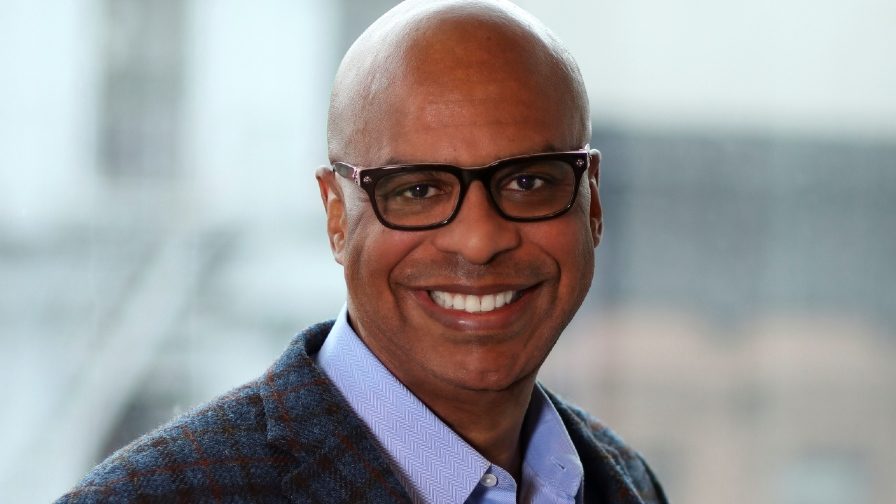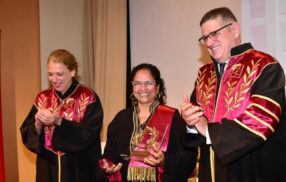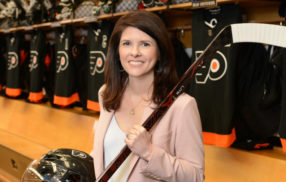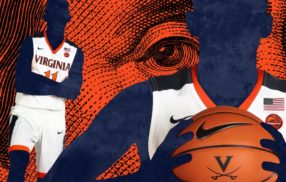
20 Questions with Parity Founder and UVA Darden Alumnus Bill Shelton (MBA ’93)
By Jay Hodgkins
University of Virginia Darden School of Business alumnus Bill Shelton (MBA ’93) is the co-founder of EOS and Parity, agencies providing services, consulting and products for elite athletes with the goal of helping them become elite professionals. Parity’s mission is to improve the lives of elite women athletes, in part by helping them grow their miniscule share of a multibillion athlete sponsorships and endorsements market dominated by men. Through Parity, Shelton helps represent more than 630 elite women athletes — including a number of Olympic gold medalists — from 40-plus sports, many of whom have large social media followings but don’t have an agent.
With a background in finance at J.P. Morgan, Goldman Sachs and Deutsche Bank, Shelton is a self-described “numbers-driven feminist” whose fight for gender equity, love of sports and expertise in business all intersect in his latest endeavors.
Learn more about his mission and what motivates him in this edition of 20 Questions.
What was your first job?
My first job was as a diversity management trainee at Borden Chemicals & Plastics in Geismar, Louisiana. It was an interesting experience as they were looking for a diverse hire but didn’t address the underlying culture at the southern chemical plant. On my first day, I was threatened because of the color of my skin. Ironically, I got the job because I was Black but paid a tax (figuratively) for my color at the job.
What’s the best advice you have ever received?
To whom much is given, much will be required (Luke 12:48).
Whom do you most admire?
Andrew Vachss. He is a lawyer, a best-selling author and a warrior protecting children. He is the visionary behind the foundation I co-founded, the Legislative Drafting Institute for Child Protection at Southern University’s Law Center (a historically Black college).
What motivates you?
Being the best I can be every day and being consistent in that effort, no matter my mood, health or job that I am doing.
When and where do you do your best thinking?
After my morning workout.
What’s been on your mind lately?
The visceral disagreements in our country. Rather than engage and look for solutions, people would rather bunker down and call the other side stupid (or worse). For the first time in my life, I can see how Americans got into a civil war.
What are you reading these days?
Michael Lewis’ The Premonition, Andrew Vachss’ That’s How I Roll and Stephen King’s Billy Summers
What technology can you not live without?
Uber
What’s your motto?
It’s corny but, “Be the best you can be.”
How do you deal with conflict?
Directly, nonemotionally, and nonpersonally. That translates to addressing the behavior or action that caused the conflict and not the underlying motivations (or my perception of the motivations).
What characteristics do you look for in people?
Intelligence and authenticity.
What is your “superpower”?
Persistence and strength. Colleagues call it Shelton’s “Harlem Water Torture” (I live in Harlem).
How do you unwind?
Competing and training (Masters Track/400 meters) and trips to small Caribbean islands, particularly Mustique and Petit St. Vincent.
What cause is most important to you?
I am most motivated to protect children from sexual predators.
If you could live anywhere, where would it be?
Malibu, California
What do you lose sleep over?
The amount of evil that society glosses over in the pursuit of “feeling good” about themselves and their community.
Which class at Darden impacted you the most?
“International Financial Accounting” because it gave tangible evidence and results of how different cultures impact financial accounting rules and practices. For example, a country with more conservative cultural values can see those values exhibited through a shorter amortization period for a fixed asset.
What’s your favorite Darden memory?
Getting the C. Steward Sheppard Leadership Award. I considered myself an outsider at Darden and to be recognized as a leader in my class was unexpected and fulfilling.
You serve on Darden’s Racial Equity Advisory Cabinet. What progress do you see at Darden and what challenges remain as the School strives for racial equity?
I see progress at Darden, and in society, in the opportunities available for the cream of the crop of racial minorities. President Barrack Obama is a perfect example, as he would not have been elected president 40 years ago. The challenge is that people look at the former president and see that as evidence that things are better. Things are better, but only at the top. Things are worse for the rank and file. You can see that in the widening wealth gap between Blacks and whites.
Gains have also been made in attitudes. I believe Darden stakeholders have a more constructive attitude on dealing with racial crises. For example, the response to George Floyd’s murder was treated much differently than the outcome of the trial of the officers that beat Rodney King (which happened while I was a student at Darden). I was devastated after the LA police were not convicted, but I don’t even think it was an item discussed in class.
Between Parity and your work on the Racial Equity Advisory Cabinet, equity and equality seem to be part of your personal mission. Why?
To whom much is given, much will be required (Luke 12:48)
Social media and new technologies seem to be changing the world of athlete sponsorships. What might surprise the average sports fan who still thinks of Michael Jordan and Nike or Roger Federer and Rolex?
A shift in power from institutions (leagues, teams, distribution) to the individual creator (athlete, in this case). A tangible example is the collective bargaining agreements between owners and players. I think over the next 20 years there will be big changes and more money for the players.
The most surprising thing to me is the disparity in pay in women’s sports compared to men. For example, Serena Williams is only the 33rd most highly paid athlete in the world and makes one-third the amount of Roger Federer.
The University of Virginia Darden School of Business prepares responsible global leaders through unparalleled transformational learning experiences. Darden’s graduate degree programs (MBA, MSBA and Ph.D.) and Executive Education & Lifelong Learning programs offered by the Darden School Foundation set the stage for a lifetime of career advancement and impact. Darden’s top-ranked faculty, renowned for teaching excellence, inspires and shapes modern business leadership worldwide through research, thought leadership and business publishing. Darden has Grounds in Charlottesville, Virginia, and the Washington, D.C., area and a global community that includes 18,000 alumni in 90 countries. Darden was established in 1955 at the University of Virginia, a top public university founded by Thomas Jefferson in 1819 in Charlottesville, Virginia.
Press Contact
Molly Mitchell
Associate Director of Content Marketing and Social Media
Darden School of Business
University of Virginia
MitchellM@darden.virginia.edu







